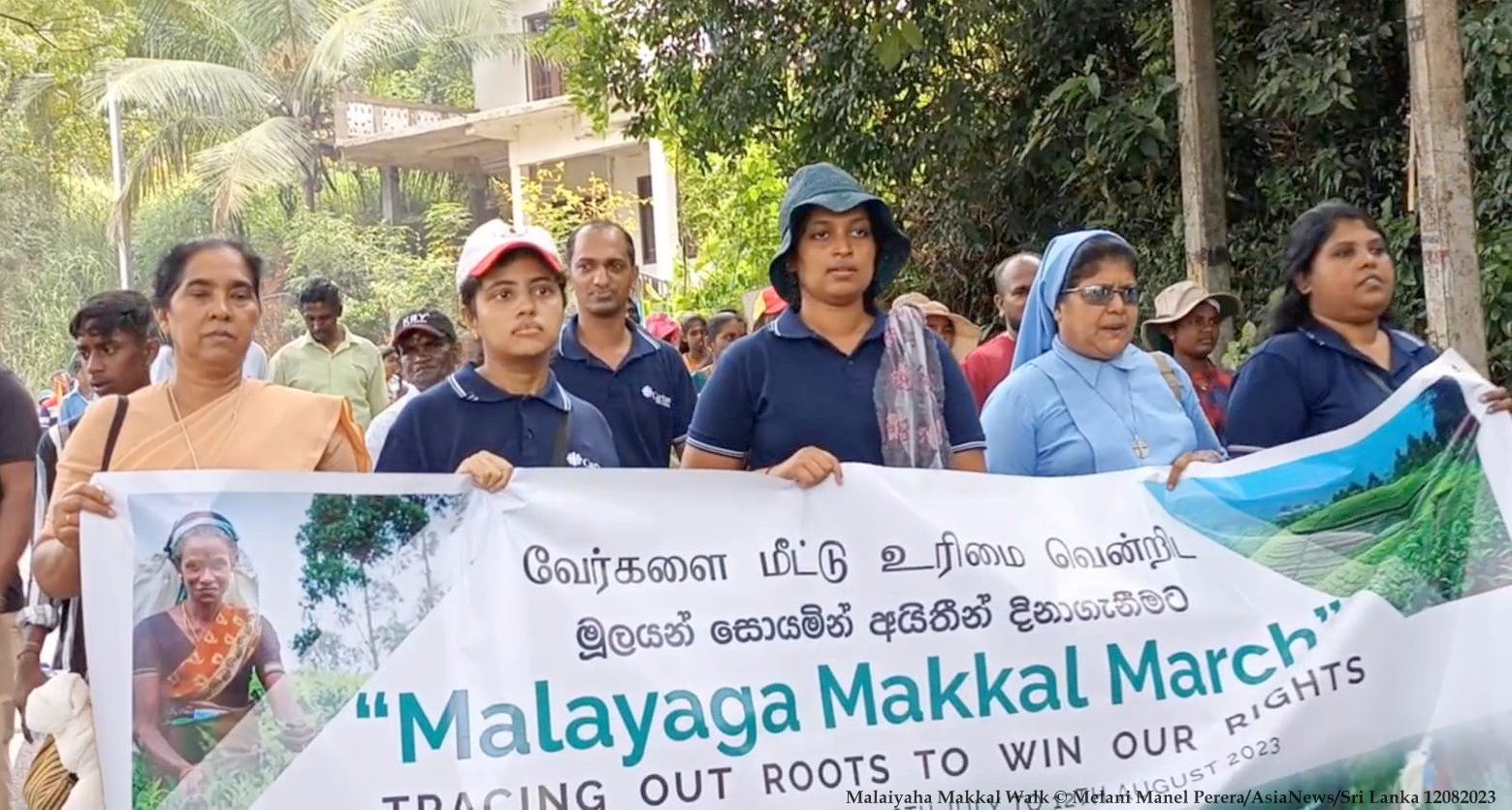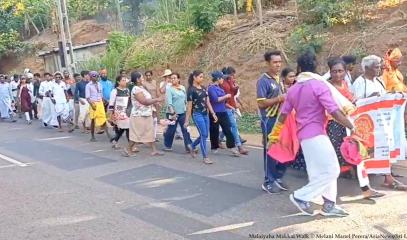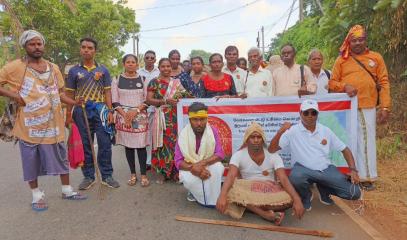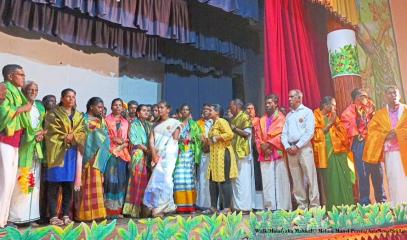Malaiyaha Makkal: the long march for Tamil farmers' rights
Originating in southern India 200 years ago, they migrated to what was then Ceylon. A 15-day walk to relaunch their battle for dignity and against exploitation. Catholics, Protestants and Buddhists have joined the initiative. Sister Deepa Fernando tells AsiaNews: "shameful" the attitude of the authorities and the government, they are "the backbone" of the economy.
Matale (AsiaNews) - From a small protest march promoted by a small group of plantation workers, civil society representatives and religious leaders, the initiative ended 15 days later with an impressive crowd raising slogans and appeals to the government.
United under the motto 'Malaiyaha Makkal-Malaiyaha People with Dignity', the participants - a number that grew over the days - demanded solutions to the 11 demands made by the plantation farmers.
At issue was the Malaiyaha community, made up of Tamil inhabitants from India who 200 years ago were brought to what was then Ceylon, now Sri Lanka, to work in the fields (especially tea, one of the island's most popular products) and whose existence has long been the subject of a fierce struggle for rights and against exploitation.
Among those who have supported the initiative in recent days is UN Special Rapporteur on Modern Slavery Tomoya Obokata, who called on the leadership in Colombo to 'intensify' efforts to 'promote and protect' the rights of the community.
The commemoration, which started in Thalaimannar, ended on 12 August in Matale in a symbolic 'padayatra' journey reminiscent of the original journey of the Tamils from South India under the motto 'Tracing our roots to win our rights'. Sixty people made the entire 252 km journey, but many more joined in along the way, including Catholic and Buddhist leaders, civil society representatives and workers.
"There are many other communities that have achieved their goals, while we are still struggling," Weerasingham, one of the members of the committee promoting the march, points out to AsiaNews.
"Our situation deserves more attention. We don't just want to be seen as a community that needs sympathy; we want recognition for our contribution. We have been denied access to education, health care and other essential qualifications. We seek greater recognition," he adds.
The demonstrators received the full support and solidarity of religious leaders and activists, some of whom, interviewed by AsiaNews, described as "shameful" the attitude of the authorities who do not listen to the appeal of the plantation workers.
Sister Deepa Fernando, a nun and activist among those taking part in the march, confirms that among the most marginalised and exploited categories are the plantation workers, particularly the Malaiyaha, who "have been suffering in our country for 200 years" without any ruler having heeded their cry. "How is it that these communities have not been accepted as citizens" of Sri Lanka the nun asks despite being the "backbone of the national economy".
Buddhist leader, Venerable Karavilakotuwe Dhammathilake Thero, notes "through this march (paada yathra) we have listened to their past sufferings" to make the journey that separates 'Matale from Thalaimannar'. These people have had to 'sacrifice' their lives, he adds, 'but they still do not have the privilege of adequate rights'.
Hence the appeal to Colombo to "immediately address these demands of the plantation workers, who are our brothers and sisters". He concludes that they too must benefit, from "rights, adequate salary and a dignified life like other Sri Lankans."
Among the organisations that have joined the march is Caritas, which together with civil society organisations have united under the name !Collective for Maanbumigu Malaiyaha Makkal'.
The demands articulated by the Tamil Malaiyaha people, the collective says in a note, include "their recognition as full citizens, on a par with other communities in Sri Lanka."
They demand "equality, non-discrimination, security and administrative rules and political choices' in the direction of 'safeguarding the interests and identity of the community."
Complicating the reality is an economic crisis that reduces resources and hits those who continue to work on the plantations particularly hard. The 15-day march ended with an interreligious commemoration and exhibition at the Sri Muttumariamman Kovil in Matale and a 'Mata Declaration' in which their 11-point demands are reiterated.
11/08/2017 20:05










.png)










